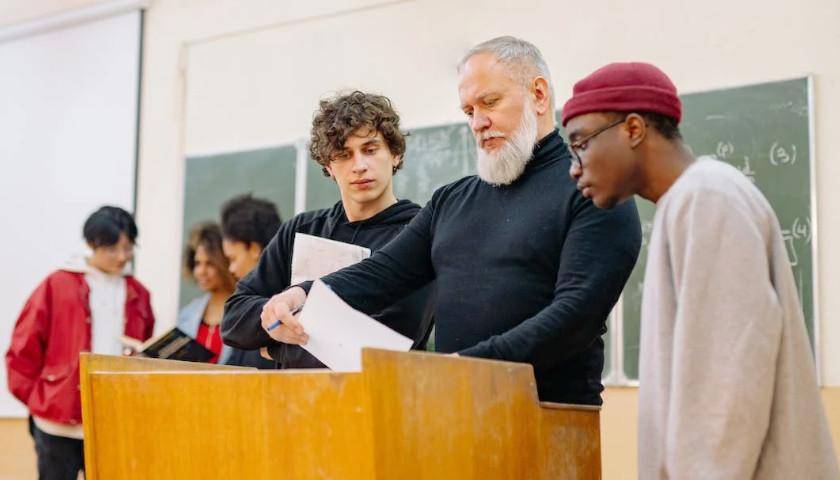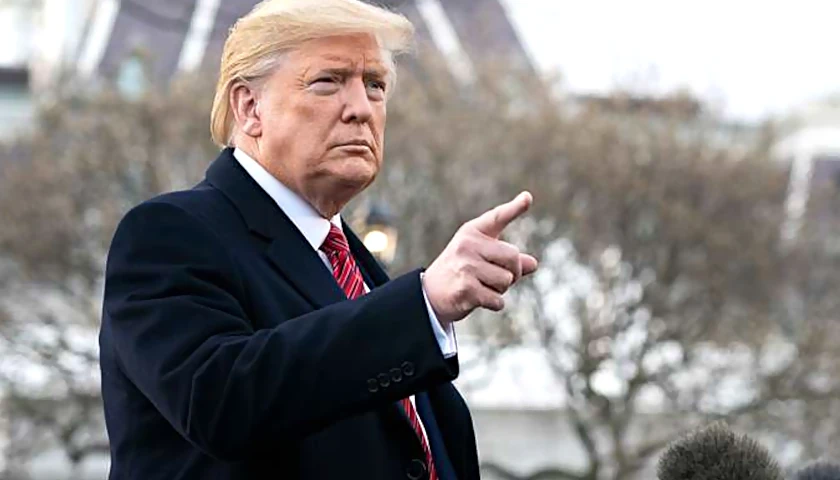by Matthew Xiao
Studies have consistently shown a pronounced left-leaning political inclination among college professors. For example, a Harvard University survey last year revealed that of the 476 faculty members who responded, around 80 percent identified as “liberal” or “very liberal.” Meanwhile, 16.8 percent considered themselves “moderate,” a mere 1.46 percent identified as “conservative,” and none claimed to be “very conservative.”
Numerous theories have been proposed to account for this prevalent tendency of professors to embrace left-wing ideologies. Some have, for example, pointed to the academic environment itself, which has long been an insulated echo chamber where reality takes a backseat and utopian visions flourish.
Thomas Sowell, a renowned economist and social theorist, describes academia as “the natural habitat of half-baked ideas” in his book The Vision of the Anointed, noting that “the most fundamental fact about the ideas of the political left is that they do not work.” So it’s not surprising, Sowell argues, that we “find the left concentrated in institutions where ideas do not have to work in order to survive.”
Another plausible explanation for the overwhelming number of left-leaning professors is that academia isn’t so much a breeding ground for left-wing tendencies as it is a magnet for those who already have those inclinations. Professors are typically individuals who exhibit high levels of openness to experience, one of the Big Five personality traits characterized by strong intellectual curiosity and affinity for novel concepts. This predisposition often aligns them with left-wing policies, which generally advocate for new, unconventional ideas and behaviors.
But there’s a deeper psychological reason to consider, one that has been largely ignored by all but a few prominent scholars: the sense of authority and superiority conferred upon professors who champion liberal policies.
In The Vision of the Anointed, Sowell denounces a particular elite group consisting of left-leaning professors, policymakers, and journalists. He calls these elites “the anointed” because they anoint themselves as the rescuers of the “benighted” masses and are firmly convinced of their own moral and intellectual superiority.
Many liberal professors, according to Sowell, subscribe to the notion that “problems exist because others are not as wise or as virtuous” as they are. As a result, they favor a more interventionist central government that comes with many liberal policies and conveniently position themselves at the helm. Deep down, they view fellow citizens not as autonomous, capable decision-makers, but as pawns to be ordered around.
Similarly, Sir Roger Scruton, one of the most influential philosophers and social critics, noted that people who “think about politics in an intellectual way” are more likely to be on the political left because liberal policies allow them to assume “a rather dignified and self-congratulatory place in the system.”
F.A. Hayek, a prominent economist and political philosopher, also echoed these sentiments. For example, in his 1974 Nobel Prize acceptance speech titled “The Pretence of Knowledge,” Hayek noted the growing desire among intellectuals to dismiss the input from ordinary citizens and control society according to their own vision. Instead, Hayek urged his fellow intellectuals to be more humble and realize the limits to their knowledge.
As Socrates famously proclaimed, “The only thing I know is that I know nothing.” It’s time many professors today took this lesson in humility.
– – –
Matthew Xiao is a recent graduate of Cornell University. He is currently a contributor for the Daily Caller and the College Fix. His writings have also been published in the Washington Examiner and Cornell Review.




